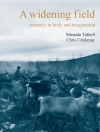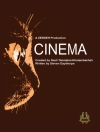Eschewing the postcolonial hubris that suggests Africa could only define itself in relation to its colonizers, a problem plaguing many studies published in the West on African cinema, this entry in the Directory of World Cinema series instead looks at African film as representing Africa for its own sake, values, and artistic choices.
With a film industry divided by linguistic heritage, African directors do not have the luxury of producing comedies, thrillers, horror films, or even love stories, except perhaps as DVDs that do not travel far outside their country of production. Instead, African directors tend to cover serious sociopolitical ground, even under the cover of comedy, in the hopes of finding funds outside Africa. Contributors to this volume draw on filmic representations of the continent to consider the economic role of women, rural exodus, economic migration, refugees and diasporas, culture, religion and magic as well as representations of children, music, languages and symbols.
A survey of national cinemas in one volume, Directory of World Cinema: Africa is a necessary addition to the bookshelf of any cinephile and world traveller.
表中的内容
Acknowledgements
Introduction
Films of the Year
A Screaming Man
The Pirogue
Eighteen Days
Directors
Abderrahmane Sissako
Osvalde Lewat
Darrell Roodt
Francois Verster
Modes of Production
What is African Cinema? The Industries of African Cinema
French Funding and African Francophone Cinema
Bongo Movies: A Modern African Film Industry in Tanzania
Aesthetics
Scoring African Cinema
Locations: Authentic or Substituted
Festival Focus
Fespaco Film Festival
African Film Festivals Around the World
Drama
Documentary
Comedy
Social Issues
Childhood in African Cinema
Literary Adaptation
History and Film
Screening War, Surviving War
Africa Seen by ‘Outsiders’: Invention, Idea, Method
Surreal
(Home) Video Films from Nigeria and Ghana
Recommended Reading
African Cinema Online
Test Your Knowledge
关于作者
Sheila Petty is professor of media studies and Sask Power research chair in cultural heritage at the University of Regina. A fellow of the Royal Society of Canada, she is author of Contact Zones: Memory, Origin and Discourses in Black Diasporic Cinema (Wayne State University Press, 2008), and co-editor of the Directory of World Cinema: Africa (Intellect, 2015). She is currently completing a book on Algerian feminist filmmaker, Habiba Djahnine.
Contact: Department of Film, University of Regina, Regina, Saskatchewan, S4S 0A2 Canada.












